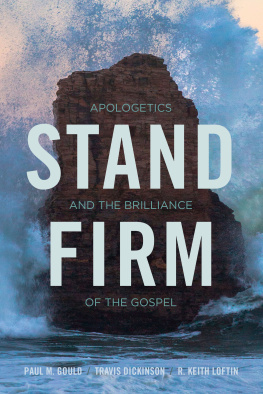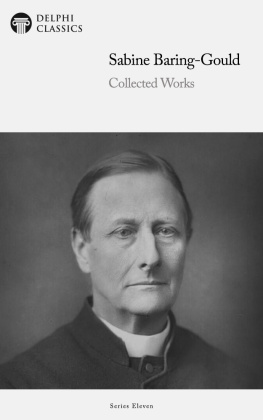Saul the Persecutor
Table of Contents
From among the most bitter and relentless persecutors of the church of Christ, arose the ablest defender and most successful herald of the gospel. With the apostolic brotherhood of the chosen twelve, who had companied with Christ from his baptism even to his ascension, was numbered one who had never seen the Lord while he dwelt among men, and who had heard his name uttered only in unbelief and contempt. But beneath the blindness and bigotry of the zealot and the Pharisee, Infinite Wisdom discerned a heart loyal to truth and duty. And the voice from Heaven made itself heard above the clamours of pride and prejudice. In the promulgation of the gospel, Divine Providence would unite with the zeal and devotion of the Galilean peasants, the fiery vigour and intellectual power of a rabbi of Jerusalem. To lead the battle against pagan philosophy and Jewish formalism, was chosen one who had himself witnessed the debasing power of heathen worship, and endured the spiritual bondage of Pharisaic exaction.
Saul of Tarsus was a Jew, not only by descent, but by the stronger ties of lifelong training, patriotic devotion, and religious faith. Though a Roman citizen, born in a Gentile city, he was educated in Jerusalem by the most eminent of the rabbis, and diligently instructed in all the laws and traditions of the Fathers. Thus he shared, to the fullest extent, the hopes and aspirations, the lofty pride and unyielding prejudice, of his nation. He declares himself to have been "a Hebrew of the Hebrews; as touching the law, a Pharisee; concerning zeal, persecuting the church; touching the righteousness which is in the law, blameless." He was regarded by the Jewish leaders as a young man of great promise, and high hopes were cherished concerning him as an able and zealous defender of the ancient faith.
In common with his nation, Saul had cherished the hope of a Messiah who should reign as a temporal prince, to break from the neck of Israel the Roman yoke, and exalt her to the throne of universal empire. He had no personal knowledge of Jesus of Nazareth or of his mission, but he readily imbibed the scorn and hatred of the rabbis toward one who was so far from fulfilling their ambitious hopes; and after the death of Christ, he eagerly joined with priests and rulers in the persecution of his followers as a proscribed and hated sect.
The Jewish leaders had supposed that the work of Christ would end with him; that when his voice was no longer heard, the excitement would die out, and the people would return to the doctrines and traditions of men. But instead of this, they witnessed the marvellous scenes of the day of Pentecost. The disciples, endowed with a power and energy hitherto unknown, preached Christ to the vast multitude that from all parts of the world assembled at the feast. Signs and wonders confirmed their words; and in the very stronghold of Judaism, thousands openly declared their faith in Jesus of Nazareth, the crucified malefactor, as the promised Messiah.
And but a short time after the events of Pentecost, a mighty miracle, wrought by the apostles, filled all Jerusalem with excitement. A cripple who had been lame from his birth was healed by Peter and John in the presence of the people, within the very precincts of the temple. This astonishing cure was performed in the name of Jesus, the apostles declaring that he had ascended to the heavens, and thence imparted power to his followers; and they fearlessly charged upon the Jews the crime of his rejection and murder. Great numbers of the people received the doctrines preached by the apostles. Many of the most determined opponents could but believe, though they refused to acknowledge, that Jesus had risen from the dead. They did not, however, repent of their terrible crime in putting him to death. When the power from Heaven came upon the apostles in so remarkable a manner, fear held the priests and elders from violence; but their bitterness and malice were unchanged. Five thousand had already openly declared their faith in Christ; and both Pharisees and Sadducees decided among themselves that if those new teachers were suffered to go on unchecked, their own influence would be in greater danger than when Jesus was upon earth. If one or two discourses from the apostles could produce results so marvellous, the world would soon believe on Christ, and the influence of priests and rulers would be lost. They therefore seized upon the apostles, and thrust them into prison, expecting to intimidate and silence them. But the disciple who in cowardice had once denied his Lord, now boldly declared the power of a risen Saviour. In vain the rulers commanded to speak no more in that name. Their threats were powerless, and at last, being restrained from violence by fear of the people, they set the apostles at liberty.
Subsequent events served but to augment their fears and their hatred. The power with which the apostles still proclaimed the gospel, the wonders wrought by them in the name of Jesus, the converts daily added to the church, the union and harmony that pervaded the body of believers, the swift and terrible manifestation of divine judgment in the case of Ananias and Sapphira,--all were marked by the Jewish leaders, and urged them on to still more determined efforts to crush the powerful heresy. Again the apostles were arrested and imprisoned, and the Sanhedrim was called to try their case. A large number of learned men in addition to the council was summoned, and they conferred together as to what should be done with these disturbers of the peace. But the angel of the Lord by night opened the prison doors, and brought forth his servants, bidding them again proclaim in the temple the words of life. Great was the amazement of priests and rulers when, being assembled at dawn to pass sentence upon the prisoners, they received the report that the prison doors were securely bolted and the guard stationed before them, but that the apostles themselves had been mysteriously delivered, and were already preaching in the temple.
Once more summoning them before the council, the high priest angrily reminded them of the warning they had received, and charged them with endeavouring to bring upon the Jews the blood of Christ. They were not as willing to bear the blame of slaying Jesus as when they swelled the cry with the debased mob, "His blood be on us and on our children!"
Peter and his brethren repeated their former assertion, that they must obey God rather than men. And then the accused became the accusers, and as they were moved by the Spirit of God, they solemnly charged the murder of Christ upon the priests and rulers who composed the council. These dignitaries were now so enraged that they decided without further trial, to take the law into their own hands, and put the prisoners to death. They would have executed their murderous designs at once but for the calm and judicious counsel of Gamaliel, who warned them to beware of proceeding to violent measures before the character of the movement they opposed should be fully developed, lest haply they should be found fighting against God. The learning and high position of this eminent rabbi gave weight to his words. The priests could not deny the reasonableness of his views. They very reluctantly released their prisoners, after beating them with rods, and charging them again and again to preach no more in the name of Jesus or their lives would pay the penalty of their boldness.













